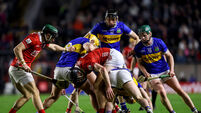Charles Taylor in the dock for war crimes
Infamous warlord, accused blood diamond merchant and former Liberian President Charles Taylor will be in the dock today before a war crimes tribunal bent on sending a powerful message to the world’s despots that no one is above the law.
Security is tight at the Special Court in Sierra Leone, the country to which Taylor is accused of exporting his own civil war. Court officials who have received death threats and the first former African president to be charged with crimes against humanity will be protected by bullet-proof glass and dozens of UN peacekeepers from Mongolia and Ireland.














